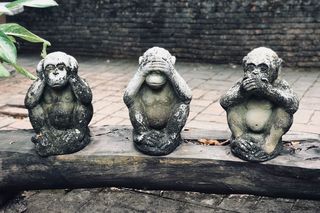Over our lifetime, we accumulate a vast amount of knowledge. Vocabulary and factual knowledge expand. Insights deepen. We also gain the ability to productively use knowledge. We put our knowledge to use helping others.
In many ways, we become wiser.
Wisdom can seem an amorphous concept, in part because it reflects a combination of many sub-abilities. Specific definitions of wisdom vary (Gluck, 2018), but many focus on intersecting knowledge, reflection, and emotional components (Ardelt, 2003). Within each of these broad components, age gives us some advantages.

As we live longer, we amass information and we become efficient at storing that knowledge. We notice patterns and abstract big-picture takeaways. We figure out how to use our knowledge productively, whether it be in the workplace or in personal relationships.
We think beyond ourselves. As discussed in our previous posts we become better at reasoning about and resolving social conflicts (Grossmann et al., 2010). We prioritize acting in ways that benefit others (Lim & Yu, 2015). Within Erik Erikson’s developmental framework, older age is marked by “generativity”: a concern for others and a need to nurture and guide the next generations.

Age also appears to gift us with another key facet of wisdom: the ability to achieve “emotional homeostasis,” returning ourselves to emotional stability even when the world has thrown us for a loop (Lim & Yu, 2015). Age bestows us with an ability to be emotionally resilient: to regulate negative emotions so they don’t overwhelm us, to rebound from setbacks, and to see the silver linings.
Wisdom is multi-faceted, and so it is unsurprising that not every measurement of wisdom shows a benefit with age. Older adults don’t always do better than younger adults at figuring out how others will behave or at understanding the motivations behind others’ actions (Gollwitzer & Bargh, 2018). And adults of all ages can be overconfident in their decisions, sometimes leading to dire financial or interpersonal consequences. But for many metrics of wisdom, age is one of its strongest predictors—more than education and more than socioeconomic status (Grossman, 2010).
There is still much to be understood about what makes a person wise, and the psychological study of wisdom remains active. But for many of the traits and abilities associated with wisdom, it is the years under our belt and the knowledge we have acquired in those years that are their best predictor.
References
Ardelt M. (2003). Empirical assessment of a three-dimensional wisdom scale. Research on Aging, 25, 275–324. https://doi.org/10.1177/0164027503025003004
Glück, J. (2018). Measuring Wisdom: Existing Approaches, Continuing Challenges, and New Developments. The Journals of Gerontology: Series B, 73(8), 1393–1403. https://doi.org/10.1093/geronb/gbx140
Gollwitzer, A., & Bargh, J. A. (2018). Social psychological skill and its correlates. Social Psychology, 49(2), 88-102. https://doi.org/10.1027/1864-9335/a000332
Grossmann, I., Na, J., Varnum, M. E. W., Park, D. C., Kitayama, S., & Nisbett, R. E. (2010). Reasoning about social conflicts improves into old age. Proceedings of the National Academy of Sciences, 107(16), 7246–7250. https://doi.org/10.1073/pnas.1001715107
Kensinger, E. A., & Gutchess, A. H. (2017). Cognitive Aging in a Social and Affective Context: Advances Over the Past 50 Years. The Journals of Gerontology: Series B, 72(1), 61–70. https://doi.org/10.1093/geronb/gbw056
Lim, K. T. K., & Yu, R. (2015). Aging and wisdom: Age-related changes in economic and social decision making. Frontiers in Aging Neuroscience, 7. https://doi.org/10.3389/fnagi.2015.00120


